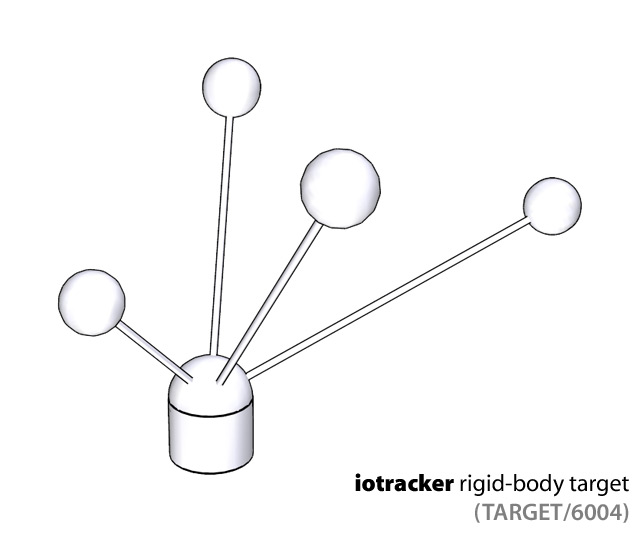|
|
LITR 5439 Literary & Historical Utopias Model Assignments
|
|
![]()
Chrissie Johnston
June 24, 2011
The Attraction of Perfection
For the past eight years of my teaching career I’ve dealt only with dystopian literature. My students and I love it. Of course, dystopias are the only “topias” taught in public schools. Neither of us have had any experience with Utopian literature because it simply isn’t a part of modern curriculum. Why Utopias are not taught in high schools is a matter for another time, but my students and I do know what a utopia is. We all want it.
A utopia is a perfect place or society. It is always better than where we started, what we were born with. Felicia Byrd wrote in her 2009 midterm that, “The difficulty of definitions is that there are no absolutes. There is no pure example of a utopia; perhaps, it is because perfection is unobtainable.” This is where my struggle with the genre has always come in. How can there be a perfect utopia unless all members of the society agree it is perfect? Getting a group of people to totally agree on something is not easy, and when someone does not agree, I believe it turns them off the utopia. This is one of the detractions for some of utopian literature. They do not believe a perfect society is possible, or if it is not their idea of perfection, it is not a utopia and they stop reading. On the other hand, what attracts people to utopian literature is curiosity. Man’s curious nature is awe-inspiring. This curiosity drives people to seek out new and better ways of living. It drives much of what we do in science, technology, and even literature. I believe that readers want to see if a writer has created a perfect society and how it compares to their idea of perfection. (Obj.1a)
Getting people to read utopian literature period has been and is a struggle. Many people say “they don’t work”, they could “never happen”, etc. (Obj. 1a & 3a). They say this because they disagree with what the novel may present. All of the novels we have read so far this semester limit personal freedom in some way. This type of limitation is one such thing that can alienate readers. In Moore’s Utopia, “they esteem those (pleasures) to be most valuable that lie in the mind” (53). The problem with mind (intellectual) pleasures is that a large portion of the world spends a large portion of their “free” time and money on pleasures that have nothing to do with the mind. Gambling and alcohol sales are billion dollar industries and would be excluded from Moore’s utopia. Even in the real life, in utopian communities like Twin Oaks and Los Horcones, alcohol and tobacco are pleasures that are seldom if ever used. For them, “young people lounge(ing) on hammocks, reading and engaging in serious discussions” are pleasurable past times. (Times.com)
Another aspect of utopias many people believe will not work is the change and/or value of money. Much of the world is made up of capitalist nations. In Utopia “gold and silver are of no esteem” (44) and in Looking Backward they “have not touched the greater part of the motives which underlay the love of money” (63). In both novels, society has solved the problems of greed. Everyone is employed and their needs are cared for. There is no struggle to feed their families, and there is no desire to gain more. Those ideas seem impossible to obtain for someone with a background similar to mine. I grew up poor. There were many times my mother received food from local churches because she could not buy groceries. Even today, my family lives pay check to pay check. When a person spends their life struggling to get ahead and money is a constant focus in life, a society that does not have to worry about those things looks like an unobtainable dream.
While a world without money issues seems far-fetched, it can also be an attractive. In Looking Backward, the way they have a set amount of money put on their card every year, and it takes care of all their needs, is a wonderful idea to me. Most people I know would see this system as a stress free way of living. Also, the respect their society gives to all jobs, no matter the level of difficulty it requires, is appealing. To be respected for being a teacher, just as if I were a doctor, and to receive the same money as they do, would be great.
Another appealing aspect of utopias and utopian literature is the value that is placed on education. In Utopian literature there is no limit to education. Everyone receives equal education and can explore their natural aptitudes. In Looking Backward they “simply added to the common school system of compulsory education […] carrying the youth to the age of twenty one and giving him what […] used to (be) called the education of a gentlemen” (142). This would mean all people received a college education and society provided this because it made people more productive and promoted a sense of equality. A story and society that promots equality is much more appealing that the reality we live in. (Obj. 2b). Herland takes the equality and definition of education to a whole new level. In Herland the children are not even aware they are being educated. They are “taught continuously but unconsciously” (95). These children knew something about everything and “education” was “the special training they took, when half grown under experts” (95), or what we would call an internship.
As a reader, the feeling of “togetherness” that Utopias support is an attraction. Herland is a great example of this. I do not believe the fact that everyone is related by blood in the novel makes them feel so connected to one another. Because “they were sisters and as they grew, they grew together – not by competition but by untied action” (60), they were able to build their society together, perfect it together, and thus stay together.
As an educator, there are several aspects of utopias, and especially dystopias, which have attracted me to the genre. One such attraction is the use of dialogue to inform. (Obj. 1a &c) During class discussion it seemed that many people were turned off by Dr. Leete’s Socratic dialogue with Julian West. I actually enjoyed this because Dr. Leete explains the changes from 1887 to 2000 by using simple terms and examples and leads Julian to the answers he seeks. Dr. Leete does not just say “This is how it is now.” He connects Julian’s past and previous knowledge to the future and changes in society that has made the world a utopia. The discussions were helpful to me because whenever they covered things such as economics, I was able to keep up and understand what was going on. Economics is not my strong suite so this type of dialogue was able to keep my attention from wondering too far.
The use of the analogies, particularly the military analogies, in Looking Backward would make teaching this novel relatable and understandable for my students. (Obj. 1a & 5c) The majority of my students were born post 9/11. They have grown up in a time when many of their relatives were prompted to serve because of the tragedy. In fact, many of the first few groups of kids I taught are currently serving. My point is that compared to people my age, which did not have a strong connection to military service, the current youth does. Therefore, when Dr. Leete relates the collectiveness and equality of society to the collectiveness of the military, students will get that. I believe they will be less likely to say “this could never happen” or “why are we talking about this” when Dr. Leete proves to the reader it has happened and worked before.
One convention of dystopias, and why I believe American curricula emphasizes them, is the importance of individuality. (Obj. 5c) As I discussed in my research post, today’s youth is struggling with a society that wants them to be good kids, to go to school, follow the rules and dress code, mind their parents, and so on. We want children to fall in line with our expectations. However, our society also values free thinkers, people like Bill Gates and Mark Zuckenberg. We want out students to know that being different is okay, that if they have a dream like the invention of Facebook; it is okay to pursue that dream. This is why we teach novels like Anthem. Here you have a young man who is seen as something of a freak because he is so tall. He wants to be to be a scholar, but his society tells him he cannot. He triumphs in the end because he fights for what he wants and creates his own utopia. So, you have a protagonist who A) looks different- check, relatable to students, B) is told he cannot do something he really want to do- check, also relatable, and C) is the hero because he fights back and wins- check, hero wins and readers get a happy ending. What teenage cannot relate to that? If the students feel a connection to the character, they are more likely to grasp the social issues that dystopian novels discuss. In Anthem, one such social issue that is addressed is that of free speech. In Anthem, if a person says something that is forbidden they can be sentenced to death. The right to free speech is highly valued in American, and because students often feel their voice is stifled by adults, they can relate to this part of the novel. To me this is the most valuable aspect of dystopian literature, specifically for young adult readers.
Connecting characters to readers, readers to characters, and therefore to social issues is what literature is all about. (Obj. 1e) Literature should inform and entertain, dystopias do both. Our country was built by a group of people who sought a more perfect life that which they were born with. They had to fight to obtain and keep it. Once they started their idea of a utopia, they had to work out their differences and try to find way to co-exist. Their efforts created better world for generations to come. Everything the founders of America did are the types things that that we read about in both utopian and dystopian novels. People can learn a lot about our country and the issues we face through these novels. This is why the genre of literature is so popular and is a viable teaching tool.


